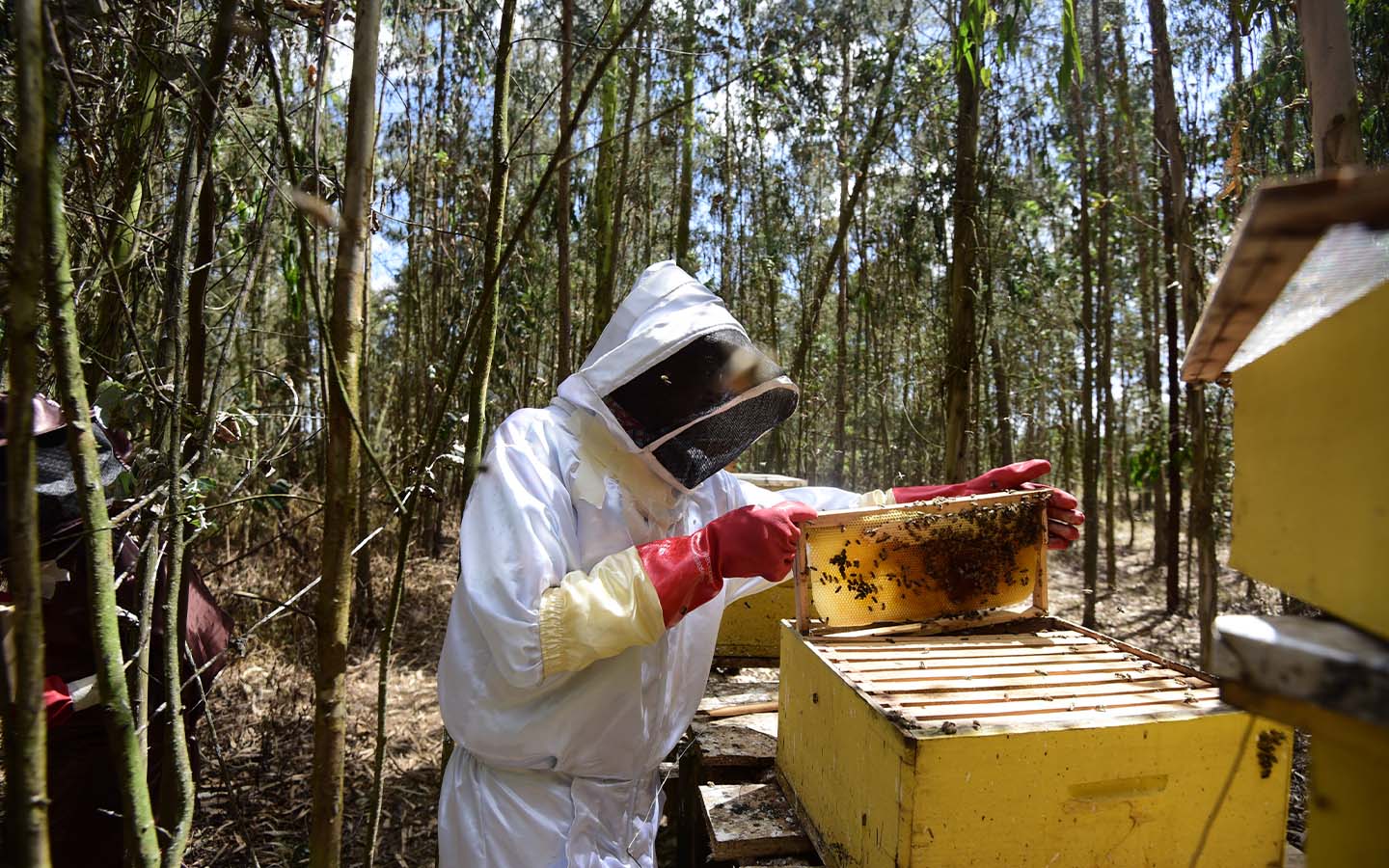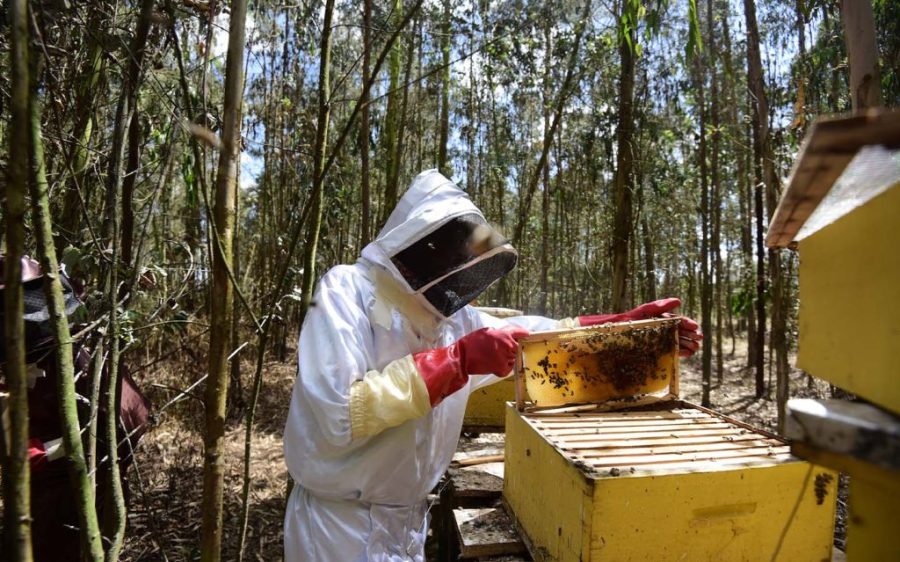A new honey production project in Mozambique aims to benefit half a million families in the buffer zone around a national park, creating a valuable source of income while also reducing human-wildlife conflict, reports the Portuguese news agency Lusa.
The Mozambican government, in partnership with the Zambezi River Agency, developed the economic empowerment project to ensure that biodiversity conservation “contributes increasingly to community development through the promotion of livelihood initiatives,” a source at the National Administration of Conservation Areas (ANAC) told Lusa.
Budgeted at around 20 million meticais (US$316,000), funding will cover the purchase of 4,000 beehives, training in local communities and the setup of a honey processing unit. The project is expected to produce 100 tonnes of honey annually, bringing significant economic benefits to the local community.
[See more: A key sustainability initiative in Mozambique is pushing for better market access]
Honey production will also help mitigate conflict between locals and Magoe’s growing population of elephants, who often destroy agricultural fields in their search for food. A landmark, nine-year study on small-scale farms in Kenya found active beehive fences deterred elephants as much as 86 percent of the time during peak crop season, when temptation is highest
Like the communities in Mozambique, the 26 Kenyan farms monitored during the study abut a national park, Tsavo East National Park. When the study began in 2007, the area was home to around 11,000 elephants, underscoring the effectiveness of this nature-based intervention. While an effective tool for “protecting the crops and preserving peaceful coexistence between humans and elephants,” ANAC also hopes the beehives will reduce direct dependence on park resources, reducing hunting, fishing, cultivation and deforestation in protection areas.
Such activities contributed to dozens of human-wildlife conflicts in the first three months of 2025, primarily with crocodiles, hippos and elephants. The honey project, along with other development and awareness initiatives, were developed in response to this growing issue. “With sustainable economic opportunities, people have less incentive to hunt wild animals illegally,” ANAC noted.






